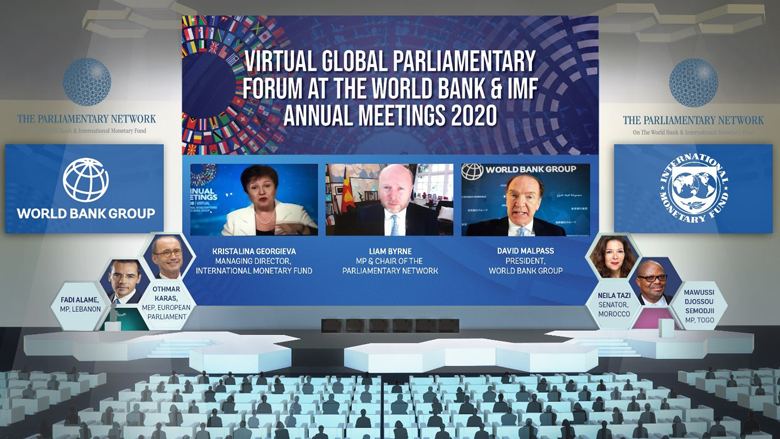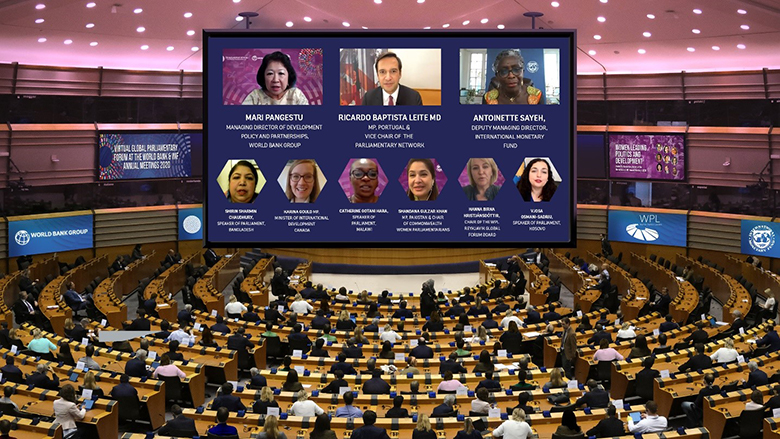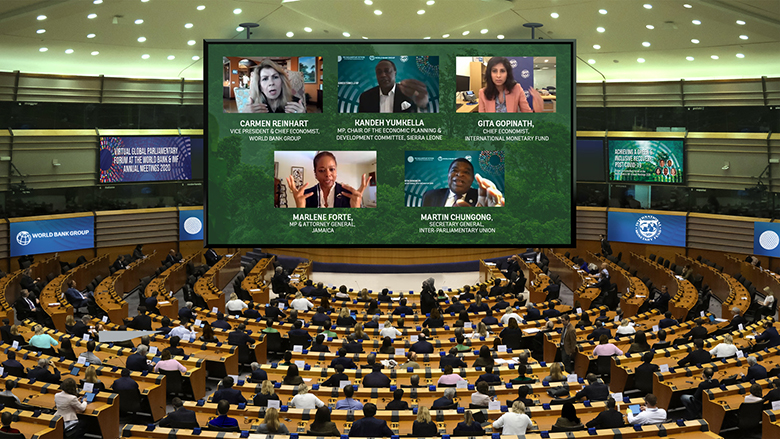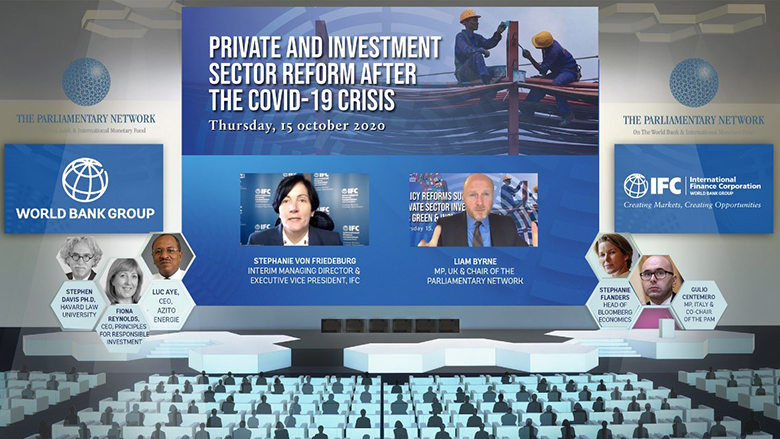October 12-15, 2020 – The World Bank Group organized its first virtual Global Parliamentary Forum themed “Achieving a green and inclusive recovery post COVID-19” from October 12-15, 2020 on the occasion of the Annual Meetings of the World Bank and IMF. The four-day event connected more than 200 parliamentarians from 82 countries and the European Parliament, representing all regions of the world to exchange and learn about actions they could take in their parliaments to pave the way for a resilient and inclusive recovery from the COVID-19 pandemic.
Poverty and inequality are rising rapidly, with the first increase in poverty in over 20 years threatening to push more than 100 million people into extreme poverty by the end of this year. During the flagship leadership townhall with World Bank President David Malpass and IMF Managing Director Kristalina Georgieva, both leaders underscored engaging with legislators as key to achieving meaningful development results. Mr. Malpass emphasized the importance of parliamentarians in helping the World Bank define its development priorities, implement evidence-based policies, and translate its global mandate to country outcomes. Parliamentarians speak for the people, Ms. Georgieva noted, which is precisely what makes their voices so powerful.
“As Members of Parliament, we know first-hand what is happening on the ground. We see the people whom we are elected to represent, how their lives are impacted, and what has been unleashed upon them in the wake of COVID-19." Marlene Mahaloo Forte MP and General Attorney, Jamaica
Parliamentarians are key actors in shaping the success of development efforts through policies, reforms, oversight, and a direct link to citizens. Their role has grown ever more important in the context of the COVID-19 pandemic as they pass emergency legislation and stimulus packages, perform crucial checks and balances to oversee their governments’ handling of the crisis, and implement reforms for a better, greener, and more inclusive future. The Global Parliamentary Forum was timely in connecting them with development experts and leadership from the World Bank Group and IMF as well as their global peers to share effective policies and practices for improved outcomes at the country level. The main challenges discussed throughout the forum included debt transparency, jobs creation, empowering women and girls, transitioning towards a green economy, and partnering with the private sector.
Mr. Malpass presented the World Bank’s broad and fast response with the $160 billion in commitments available through June 2021 and support being delivered in 111 countries for emergency health response, as well as IFC’s $4 billion platform for the development of vaccines for developing countries. Ms. Georgieva also added that the IMF has provided $100 billion support for 81 countries and debt relief to the 29 poorest members. Both leaders stressed the need for debt reduction and transparency to redirect funds toward vital investments in human capital, jobs, and climate.




